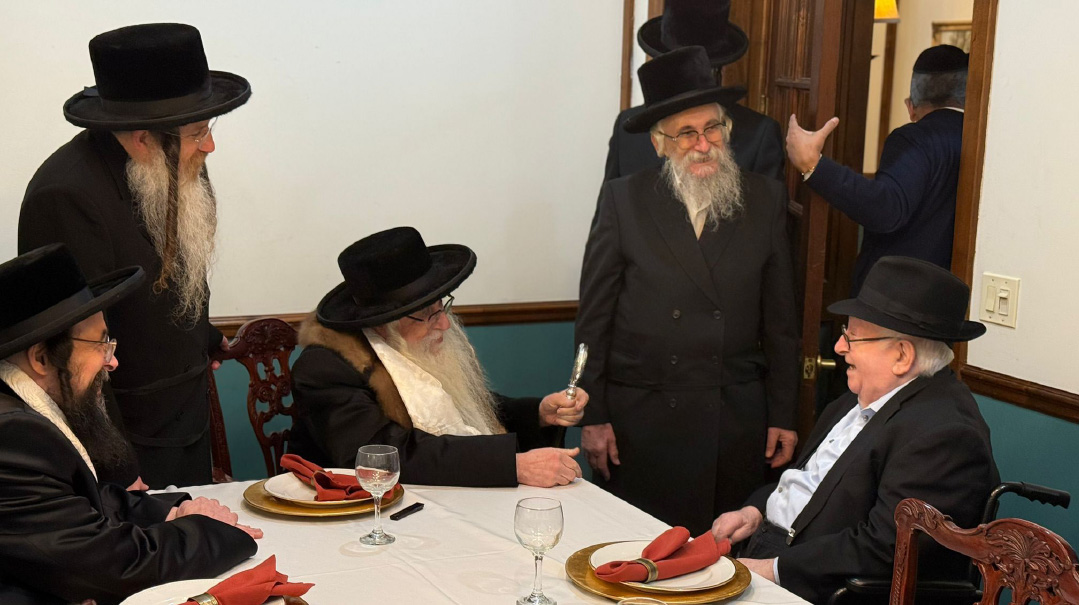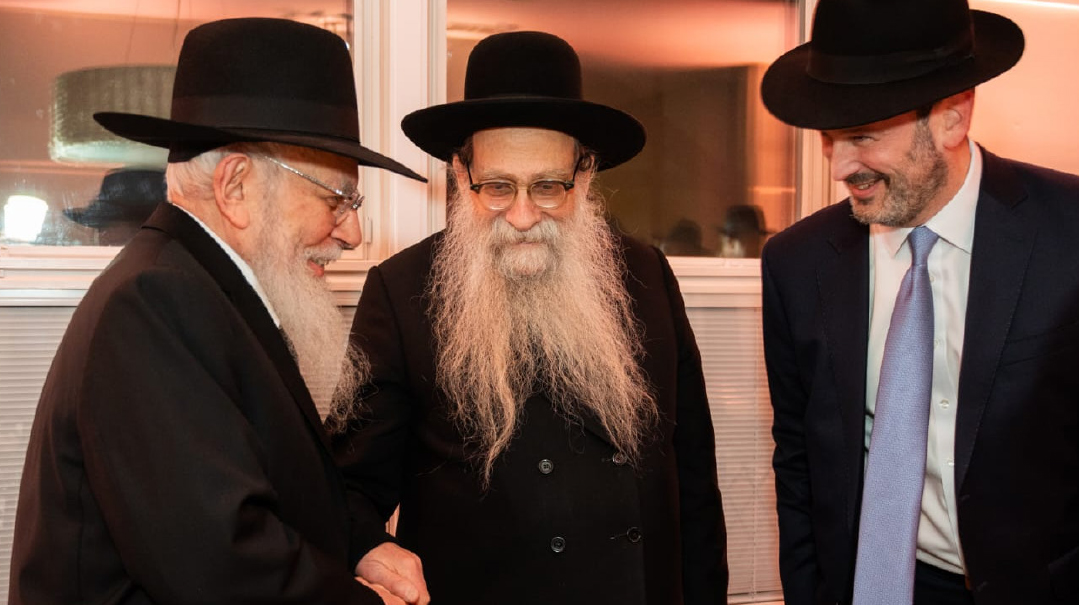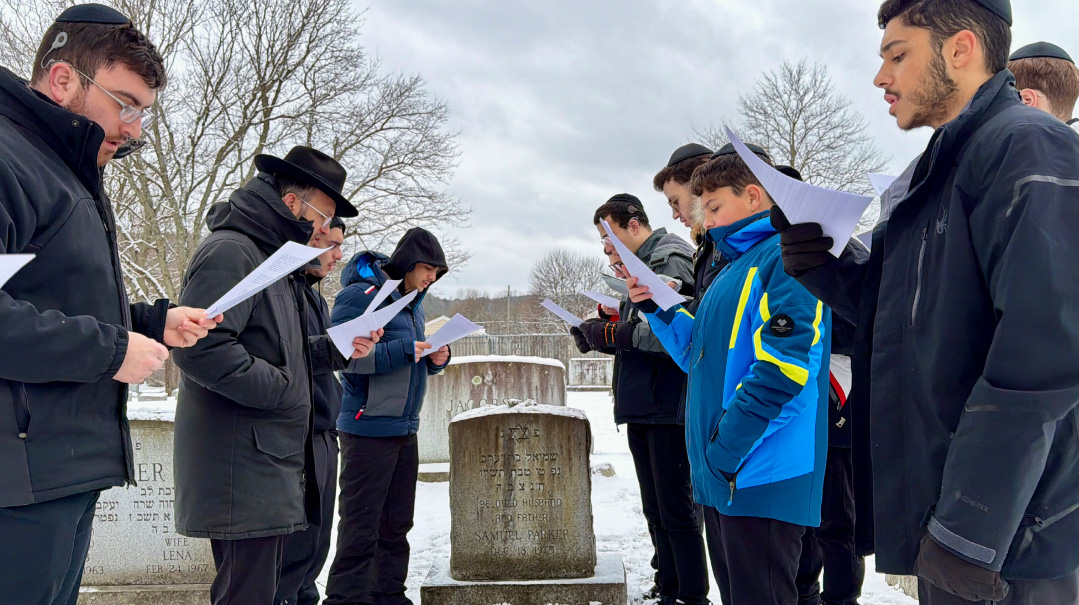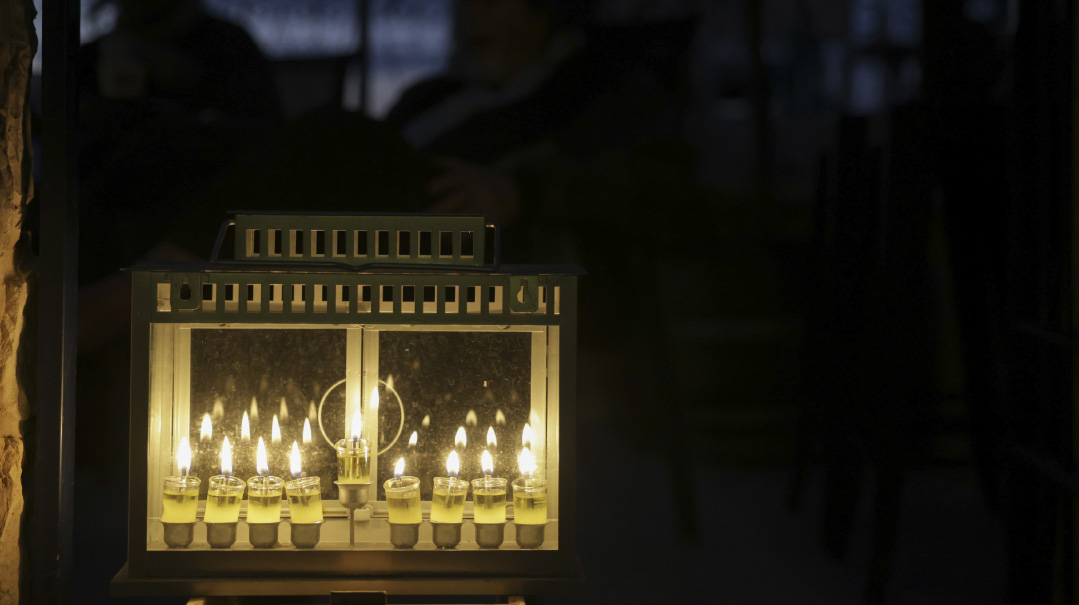The Moment: Issue 981
| October 10, 2023One could almost hear a familiar voice in Shamayim, responding with a resounding Amen
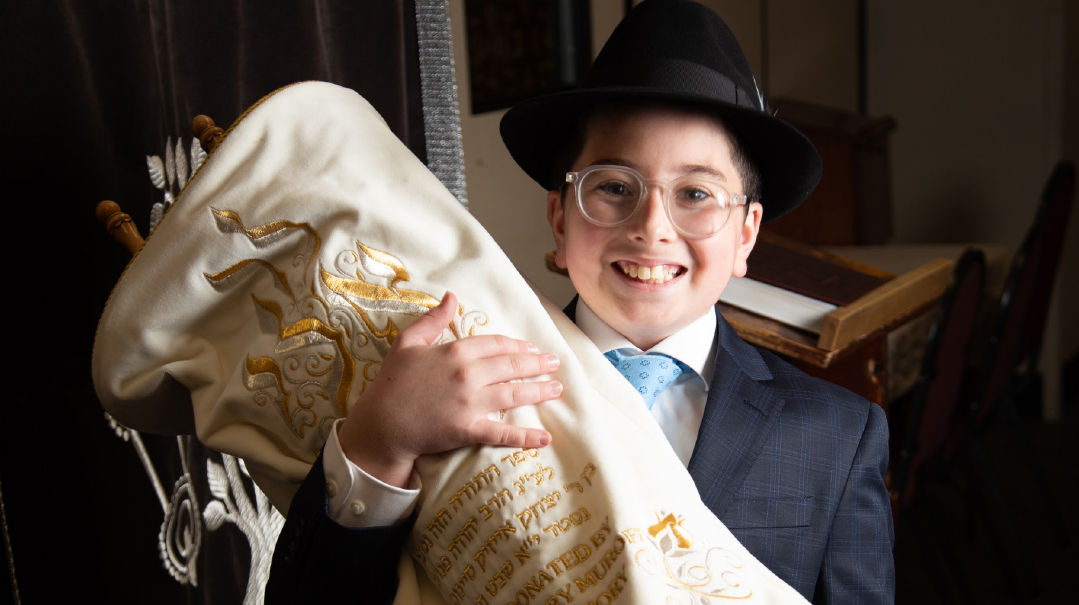
Living Higher
A
bar mitzvah boy’s leining is always a poignant moment, melding hopes and dreams with a fiery commitment to realize those goals. But at Nochi Simes’s bar mitzvah a few weeks ago, the bar mitzvah bochur’s flawless rendition of parshas Ha’azinu marked a connection to the past as much as it did a promise for the future.
In 2010, the Simes family, who then lived in Ottawa, Ontario, were involved in a terrible car accident. Mrs. Simes and the seven children present in the car emerged miraculously unharmed. Her husband, Rabbi Yehuda Simes, was less fortunate; the accident left him a quadriplegic.
At the time, Mrs. Simes was expecting, and incredibly, the unborn child was unharmed as well. Young Nochi, born shortly afterward, grew up in a home filled with the joy that can only come from the deepest reservoirs of faith. Rabbi Simes, “the Rolling Rabbi,” faced his nisayon head-on, with courage and strength, and became a legendary source of inspiration to thousands, as well as those who learned about him from the book his wife wrote after his petirah, published by Israel Bookshop Publications.
In 2017, after battling complications for years, Rabbi Simes passed away, and the following year, a sefer Torah was donated to Congregation Beit Tikvah Ottawa in his memory.
In 2019, the Simes family moved to Queens, where Nochi celebrated his recent bar mitzvah. An important guest, however, arrived from Ottawa. The precious sefer Torah, bedecked in a beautiful mantle emblazoned with Rabbi Simes’s name, was placed upon the bimah, waiting for Nochi to step forward and utter the age-old blessing, thanking Hashem for choosing us as His nation and for giving us His Torah.
It was a moment that encapsulated the duality of pain and gratitude that had accompanied Nochi throughout his upbringing. And when he carefully enunciated the words of the aliyah, one could almost hear a familiar voice in Shamayim, responding with a resounding Amen.
At Any Price
As the fires of war rage through Eretz Yisrael, Yidden all over the world huddle in fervent prayer, the timeless words of Tehillim serving as the sole respite from choking fear.
Thousands of years ago, Dovid Hamelech wrote, “Omdos hayu ragleinu bisharayich Yerushalayim — Our feet were standing in your gates, Yerushalayim” (Tehillim 122). The Gemara in Makkos 10a elucidates the verse as follows: “Says Rabi Yehoshua ben Levi... Who causes our feet to stand resolute in war? ‘The gates of Yerushalayim’ who toil in Torah.”
In this light, yeshivos have canceled bein hazmanim, fortifying the gates of Yerushalayim with the kol Yaakov as our brothers wage battle against the yedei Eisav. And in another display of cohesive teamwork, an initiative called soldier2soldier is pairing up soldiers on the field with full-time lomdei Torah. Within two days, over 200 families signed up, linking armies together.
Of the many emails providing positive feedback, one stood out as a perfect encapsulation of the sentiment shared by all of Klal Yisrael. A mother described how she informed her children that they would be davening and learning for a specific soldier. “Mommy, do we know him?” her daughter asked.
“We don’t,” she answered, “and they don’t know us, but we are a family fighting the same war.”
From the sinister borders of enemy territory to the batei medrash of Yerushalayim, the unbreakable achdus that defines our people will surely carry our tefillos to the gates of Heaven. May we soon merit to see geulah and yeshuah for all.
Branch of Peace
Reb Meir Avigdor, a respected rosh chaburah in Lakewood’s Beth Medrash Govoha, was sitting beside one of the yeshivah’s preeminent poskim, Rabbi Shmuel Meir Katz, as he checked hundreds of daled minim sets for people who wanted the Rav’s approval. At the end of the day, a bochur rushed in panting, and asked if the Rav could check his hadasim.
Regretfully, Rabbi Katz told the bochur that he had to leave, and the young man turned to go. But shortly after, the Rav called Rabbi Avigdor.
“Reb Meir,” the Rav said to his talmid, “can you find out the name of the bochur we couldn’t help, and how we can get hold of him? I’m afraid he was slighted, and I want to apologize.”
“I came to get shimush in checking daled minim,” Reb Meir commented on the experience, “but it turned out that I got shimush on a different sort of greatness as well.”
(Originally featured in Mishpacha, Issue 981)
Oops! We could not locate your form.

